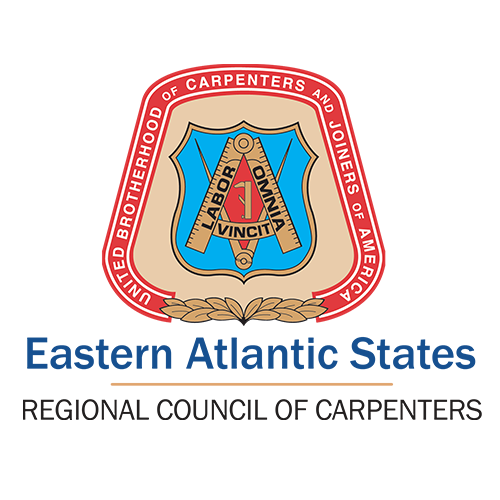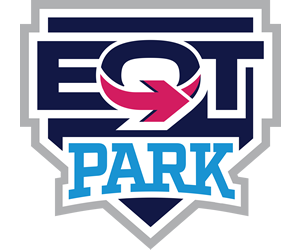Beyond the Ballpark: Shared Spaces, Shared Hearts (Pt 2)

Beyond the Ballpark: A Journey of Shared Homes & Shared Hearts Continued..
As a player, moving to a new area can be quite daunting, especially when it’s moving in pursuit of a dream. These athletes travel far from home to pursue their athletic aspirations, leaving behind familiar faces and support systems in the process.
Host families bridge the gap by welcoming athletes into their homes and communities with open arms. Through shared meals, outings and cultural exchanges, host families help athletes integrate in their new surroundings and forge meaningful connections.
Wild Things catcher JC Santini is no stranger to residing with host families.
“[It’s] part of what I enjoy about baseball,” he said. “The relationships that I’ve created in different places around the country [help] you really see more of a place, and you feel more engaged by staying with a host family.”
Having the support of a host family can make a significant difference in acclimating to a new environment and feeling connected to both the community and the team they represent.
Last summer, Santini, along with his wife, stayed with Stan and Maureen Myers, who graciously preferred to accommodate their unique circumstances. The Myers are a traditional, well-educated family that leads a simple yet fascinating life. They dine early, relish newspapers and embrace a modest lifestyle. They travel half the summer. JC and his wife house-sit for them and take care of their cats creating a mutually beneficial relationship.
The Myers provide the Santini’s with their own designated space: a room, bathroom and space in the fridge and pantry. They have a good balance between doing activities with their host family and on their own. You get integrated in how emotionally available they are. Some want to connect and fully take someone into their family: others keep a distance and don’t mind a guest in their routine.
Stan and Maureen lead active lives. Stan oversees the pickleball association while Maureen excels in a competitive bowling league. During a bowling outing, Maureen proved her prowess, yet the experience was enjoyable for all. The upcoming summer holds promise for pickleball matches.
“[One of the most rewarding parts about staying with a host family is] the conversations that you have with your family whether it’s baseball, life or something completely unrelated,” said Santini. “There’s so much to learn from a new perspective. They have such an interesting story to share about their lives and wisdom that they’ve gained and just seeing their thoughts on the world. They were really glad we were in their home, who they got paired with and very excited at the possibility of having us back for another season.”
As the season progresses, ‘you get closer.’ The couple would attend most games when they were in town, demonstrating their unwavering support. During the offseason, they’ve stayed in touch to prepare hosting JC and his wife again.
The biggest learning curve is learning the people, including their sense of humor and any quirks, to effectively navigate the relationship. It’s also about gauging the emotional availability of both parties and integrating into that dynamic.
The difference between staying in an apartment with teammates versus a host family can be these connections that extend beyond the field, helping to enrich the player’s bond with the community. Living solely among teammates can limit engagement with local environment, but branching out allows for diverse experiences and respects everyone’s life stage.
Opening your home to a player is an act of community service, Santini believes.
“You’re offering your home and space to somebody who’s coming in for a short time to be on the team and to provide the community with a fun and entertaining place to come and watch baseball,” he said. “[Every host family I’ve stayed with is] so generous and so gracious with their space. You’re going into it knowing that you’ll sort of have things in your life be changed. That’s such a selfless thing. You’re way more connected to the organization and the community and what’s going on because you have an active role in it.”
The host family can serve as a constant source of encouragement and support throughout this rollercoaster ride. Whether it’s celebrating victories together or offering a shoulder to lean on during the tough times.
Doug Krantz: Single Living, Shared Experiences: Hosting as a solo household.
Originally from Indiana and residing in Indianapolis before relocating to Southwestern Pennsylvania, Doug Krantz began his host family journey in hosting junior league hockey players. He found immense joy in the experience over a few seasons. When he moved to Pennsylvania, hockey wasn’t an option, but he discovered the opportunity to host players for the Washington Wild Things.
Doug’s decision to host stemmed from having an unused extra bedroom and a desire to make use of his spacious home. After the 2016 season, he reached out to the team expressing his interest in hosting one or two players. Following a home visit and discussion of expectations, Doug established his own set of house rules. He hosted two players in the 2017 season and “the rest is history, and it’s wonderful.”
He became a season ticket holder first: Doug has two main reasons he became a season ticket holder.
“I did not like to go the box office every time I came to the game, and I am picky about where I sit.” H
He got settled into his new home and started to browse the team website and found the host family program and emailed Tony Buccilli, nowadays the team president and general manager.
While browsing the website, Doug stumbled upon National Anthem auditions. Despite initial skepticism from judges due to his accordion, Doug’s performance won them over. Impressed, now CEO of Sports Facility, LLC, Chris Blaine invited Doug to play other songs to which he confidently agreed. As national anthems slots filled quickly, the Wild Things needed Take Me Out to the Ballgame performers. By the 2018 season, Doug, now known as Doug the Accordion Man, started to regularly entertaining our crowds during the seventh inning stretch.
Doug expressed how the preseason is the best time to form the relationship with the player. During the season, he feels it becomes more of a roommate situation. Once the season starts you have them in your home for a week and then they go away for a week so they’re not in your home constantly over the entire summer. The alternating pattern acts as a pressure valve, allowing for breaks when needed and preventing constant presence, ensuring a healthy balance throughout the summer.
Host families provide not only a place to stay but also invaluable support, guidance and friendship which can help ease the transition and make the experience more fulfilling.
“It’s about having the relationship,” said Krantz.
Doug has been a host family for approximately 15 players and prioritizes building relationships through team dinners. These gatherings provide an opportunity for players and their friends to bond and create a camaraderie.
“It’s really just that simple,” Doug claimed. “Ask any man about themselves they’ll dish forever.”
He encourages the players to communicate their food preferences and needs, and he’s willing to purchase toiletries for them.
“I feed my boys. I really feel badly when they’re buying their own food,” he said. “[And] if they’re eating McDonalds all the time, they’re not eating a healthy diet.”
Recognizing that most of them aren’t earning phenomenal wages, he aims to assist with small expenses so they can concentrate on their career.
“I want them to be spending that money on what they need,” he said. “If I get them their food and they use my laundry, I want them to let me feed them… I want them to do that so that they can be free to use whatever money they have to be better baseball players.”
Each family has its own unique dynamics and comfort levels. Some may be comfortable with certain arrangements or practices.
“My first rule is what happens at my house stays at my house,” he said. “I personally have some rules in my house. Most guys enjoy listening to the rules, but they don’t need them because they wouldn’t break those rules anyway.”
Doug believes privacy is important.
“That’s his home he deserves to have it private,” Krantz said. “I want them to be open because if they’re unhappy with the way they’re playing or the way it’s going on the field. Or if they feel like they’re not getting enough playing time or something. I’m their family for the summer.”
Whether it’s a quiet place to rest after a grueling practice/game or a supportive presence during the times of adversity, host families provide a sense of stability that is invaluable to athletes. It’s about becoming a part of something bigger. The most rewarding aspect of the experience for Doug is having “skin in the game.”
Doug loves live sports.
“If I know somebody on the team that I can root for and have a connection with and say I care about that one player or those two players… Having skin in the game. Knowing somebody that’s going to be on the team and on the field makes the game so much more interesting and important for me,” he said. “I know my guy is coming up to bat or pitching an inning, I am there and completely invested in how they’re doing. That builds a bond with the team and the whole experience for me.”
He continued: “I usually try to wear the number of whatever players I’m screaming for. I’ll tell [the people around me about it] and then I’ll say something like, ‘I had this player over to my house for dinner Monday night.’ So, I can tell them the steak, or the tacos are really working.”
Doug firmly states, “If there’s a home game and I’m not there, either I’m dead or I’ve got to work.”
He is at every game he can be so when the team has specialty jerseys he can help players buy them for families if they want them or for himself so he can wear their number and support his host player.
Doug said saying goodbye can be a very difficult thing at the end of the season but says getting to know the staff of the team is a reward too.
“You get to know the staff of the Wild Things. Getting to know them better that it makes it a wonderful family atmosphere for me,” he said. “[The] Wild Things know how to put a good show.”
For those considering becoming a host family, Doug advised them to “feel comfortable.”
“If they’re really picky about certain things like don’t sit in certain chair or whatever or [the players] have strict rules with eating and only can-do things at certain times, you must be flexible,” said Krantz. “Let them be who they are. If you cannot accept that, that’s a sign this may not be for you. If you’re laid back and let things happen, it’s wonderful experience.”
Doug is one of his players biggest supporters but, he said for him once they’re, they’re gone.
“I think it’s because they’re on to the next thing in their life and so I do not keep in touch with the baseball players.”
Although he doesn’t always keep in touch Doug claims he’ll be generous and enjoy his time, occasionally jumping in the car and going on a trip to see them play sometimes.
Staying with a host family creates the opportunity to build a lifelong relationship built on mutual respect and gratitude. Host families become an integral part of an athlete’s journey, celebrating achievements, offering words of encouragement, and providing a sense of home wherever their athletic pursuits may take them.












































































































